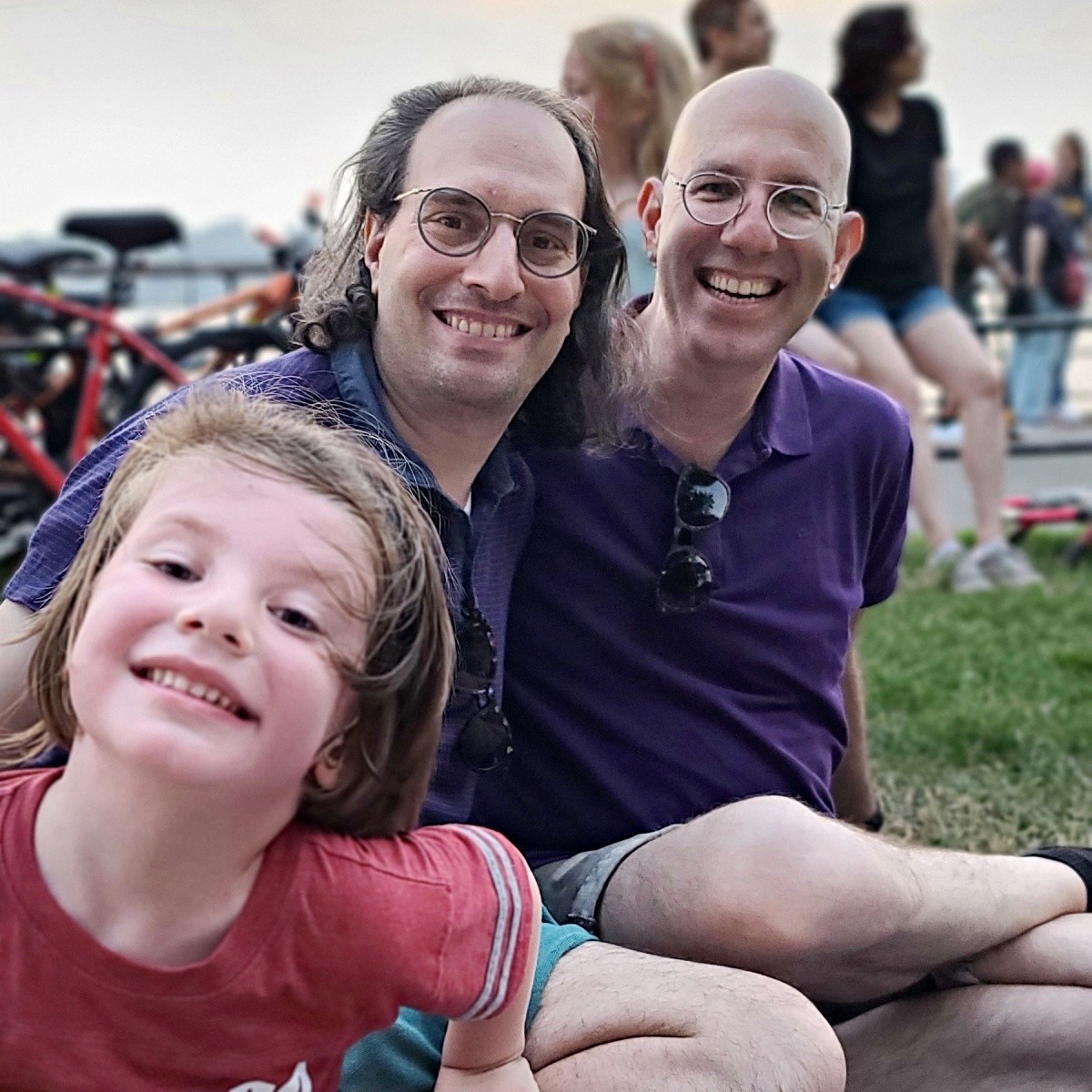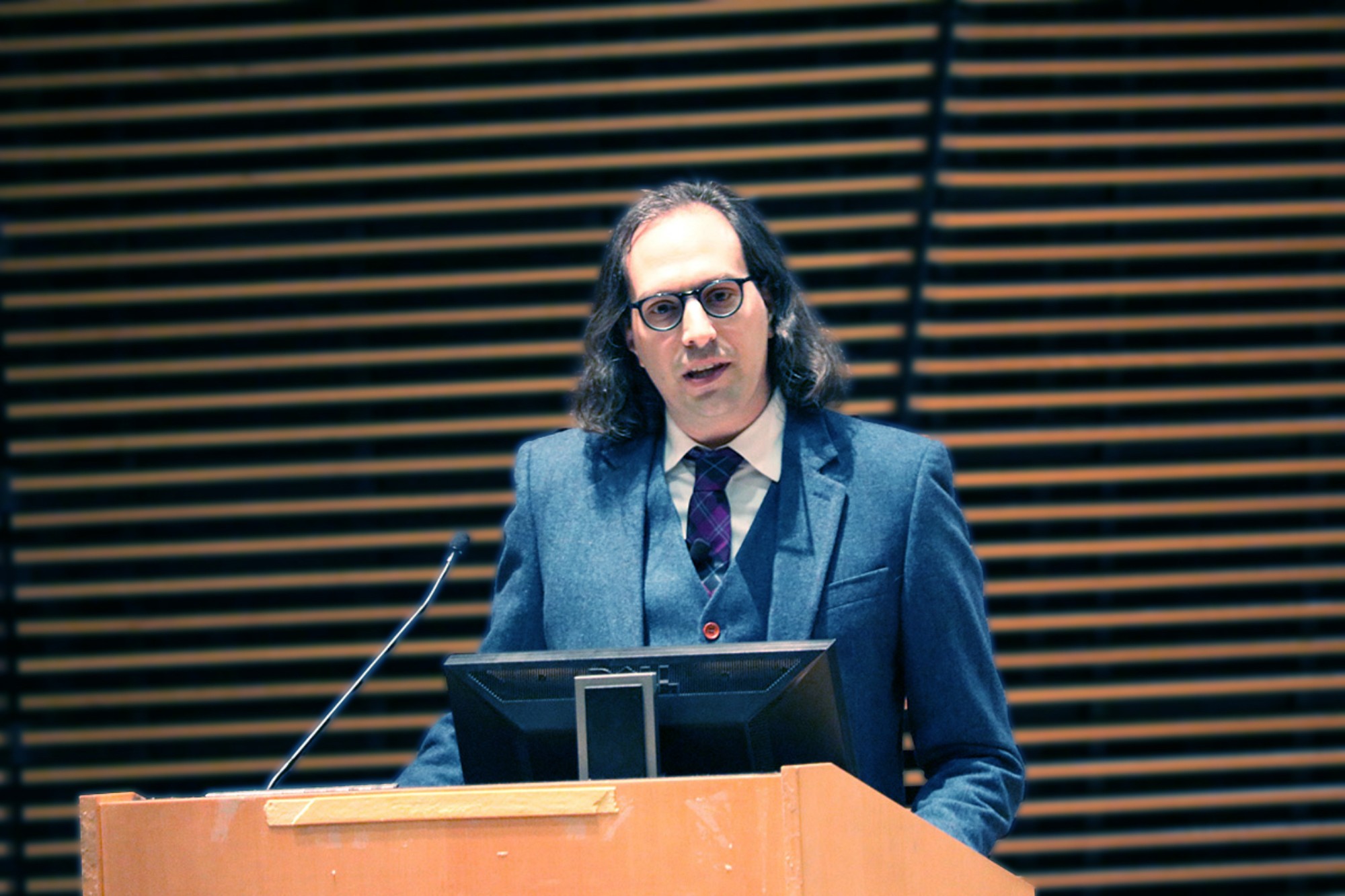If you’ve roamed 120th Street, you likely know TC’s Noah Drezner — and if you haven’t, you will. You may have seen the professor diligently guiding his young son to preschool alongside husband and fellow faculty member Oren Pizmony-Levy, or leading key initiatives as the chair of the Faculty Executive Committee.
In nine years and counting at Teachers College, Drezner has left his own distinguished marks on the foundations of TC. In addition to his aforementioned contributions, he serves as special advisor to the Office of the Provost for doctoral education and as the principal investigator for the Tzedakah Lab, which aims to redefine philanthropy as a vehicle for all people to “reclaim education as a public good” through scholarship and practice.

Drezner (center) with his husband Oren Pizmony-Levy, Associate Professor of International and Comparative Education, and their son Barak.
(Photo courtesy of Drezner)
In improving access to higher education and supporting institutions, “we’re not only able to help the individual who gains the degree, but also help society writ large and better place ourselves to solve these larger societal questions that are vexing us,” explains Drezner, who was recently honored by his alma mater Penn Graduate School of Education with the Ethel and Allen “Buddy” Carruth Sustained Leadership in Education Award for his substantive service to the education community.
And Drezner’s work to develop more meaningful, inclusive ways to think about philanthropy will only become more critical as traditional approaches to fundraising become less aligned with a more diverse world — and institutions rely on giving to meet budget needs.
“The cookie-cutter model that focuses on white, wealthy, Christian, cisgender men is not going to be successful when looking to engage others in 20 years,” says the Professor of Higher Education. “[Our research shows that] we need to be thinking about engagement differently and how people approach higher education differently, and when we do that, we’re more successful in making higher education meaningful for everyone.”
In his work to date with the Office of the Provost, Drezner has developed and advised on policies to improve the experiences of doctoral students across mentorship, affordability and other variables. In his years of service, one of his most notable acts includes championing to reduce the required credits for doctor of education degrees (Ed.D.) for parity with doctor of philosophy degrees (Ph.D.), which will take effect in 2024 and will help reduce costs for Ed.D. students and decrease their time to degree.
That care for students and his colleagues is similarly clear in Drezner’s role as the Chair of the Faculty Executive Committee. In his two years of service as Chair, which concluded this summer, Drezner focused his time on building and strengthening the community, increasing faculty voice, and shared governance at TC. He helped streamline faculty participation in committees to boost time available for teaching and research and more substantive faculty service to the College; advocated for increased faculty participation in the provost search; and ushered in a new, discussion-based format for faculty meetings, so the group can discuss research and community issues like the “larger public good and what the faculty are doing to contribute to our civic mission.”
Noah is not only producing high quality, impactful research, he is educating and mentoring the next generation of scholarship…He lifts up others through mentoring, providing resources and opportunities and taking on roles that build a field for all of us to be part of.
In addition to his core research and service to Teachers College itself, Drezner serves as the principal investigator of the National Alumni Giving Experiment and co-PI of the National Study of Lesbian, Gay, Bisexual, and Transgender (LGBT) Alumni. In addition to his recent honor from Penn GSE, Drezner received the Early Career Award in 2016 and the Association for the Study of Higher Education’s Barbara Townsend Award in 2015. He is founding editor of the TC sponsored journal Philanthropy & Education (Indiana University Press), author of over 55 manuscripts, including 6 books.
While Drezner’s schedule and CV are packed enough to impress even the most accomplished of scholars, the busy father still sees room for more — and with good reason. In addition to his “core fundamental belief” in higher education’s purpose to better the world, Drezner knows “being able to work with brilliant students” also drives his relentless work.
“To learn from them, to be challenged by them in the classroom is just exciting,” says Drezner. “I truly believe that I get to work with not only brilliant faculty but brilliant students who are going to push our field forward and add to that public good.”
